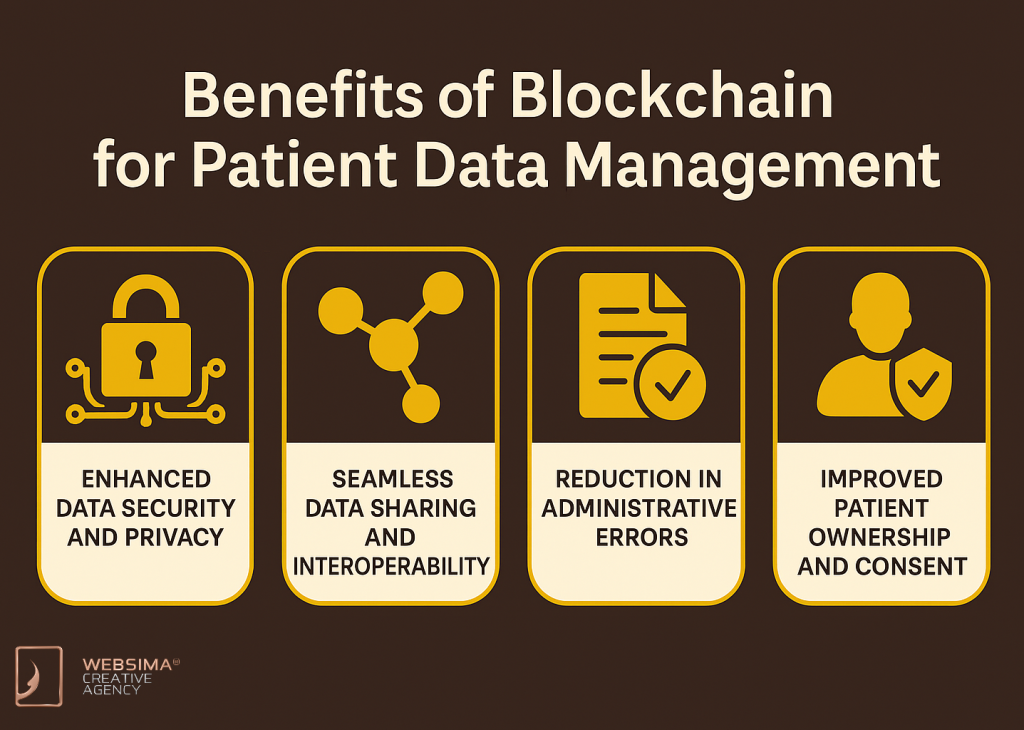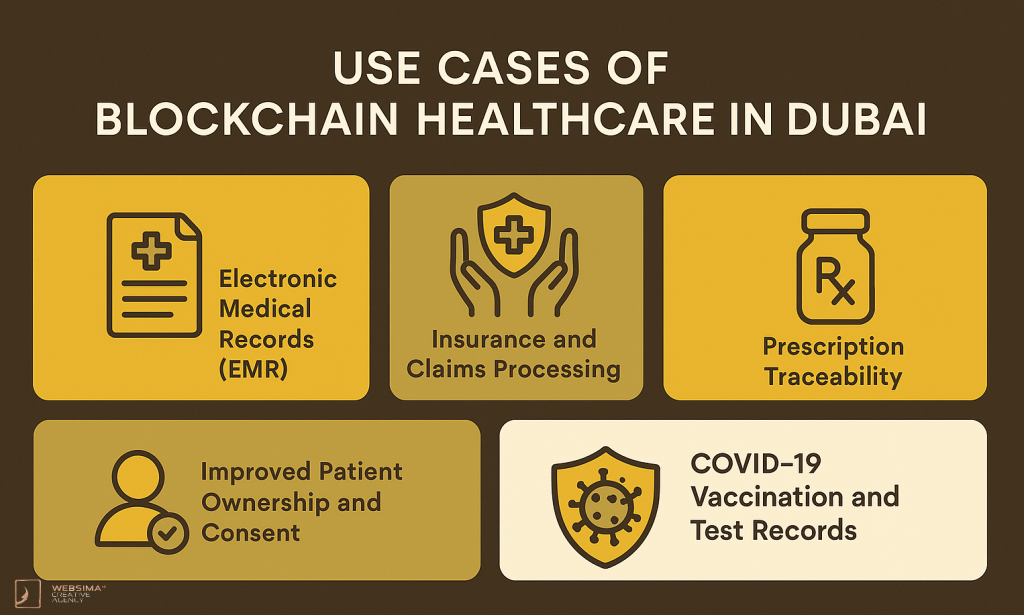Dubai is known for embracing cutting-edge technologies across its public and private sectors. In recent years, blockchain has gained significant traction in the emirate, particularly in the field of healthcare. As the city pushes towards digital transformation, blockchain in Dubai healthcare initiatives are playing a vital role in revolutionizing patient data management. From securing sensitive medical records to improving inter-hospital data sharing, blockchain technology is set to reshape how healthcare services are delivered in the UAE. Dubai is attracting crypto and blockchain entrepreneurs by paving the way to integrate blockchain in different sectors including healthcare.
This article explores how Dubai is leveraging blockchain in healthcare, the key benefits, use cases, challenges, and the transformative impact it holds for the future.
Understanding Blockchain in Healthcare
What is Blockchain?
Blockchain is a decentralized digital ledger that stores information across multiple systems, ensuring transparency, immutability, and security. Each data entry is timestamped and linked to the previous one, forming an unchangeable chain. In healthcare, this means patient records can be stored and accessed securely without tampering or unauthorized access.
Why Blockchain for Healthcare?
The Future of Healthcare is Here with JumboBlockchain
Healthcare is evolving and #JumboBlockchain is driving the transformation with secure and transparent #Blockchain solutions
Medical records are tamper proof and instantly accessible with #Web3 technology
Seamless… pic.twitter.com/6v7BktXYUY— JumboBlockchain | Mainnet is Live! (@Jumboblockchain) February 9, 2025
Healthcare systems rely heavily on accurate, timely, and secure data management. However, challenges such as fragmented systems, lack of interoperability, and security breaches have long plagued the industry. Blockchain offers solutions by enabling real-time, secure, and permissioned access to patient data, ensuring continuity of care and administrative efficiency.
Dubai’s Vision for Blockchain in Healthcare
Smart Dubai and the Blockchain Strategy
Dubai’s commitment to blockchain is evident through its ambitious Dubai Blockchain Strategy, launched in partnership with the Smart Dubai Office and the Dubai Future Foundation. One of its primary objectives is to become the first city fully powered by blockchain by 2030.
In healthcare, Dubai is using blockchain to improve healthcare services utilizing this vision to integrate blockchain across hospitals, insurance providers, government agencies, and pharmacies, allowing seamless, secure access to medical data and reducing administrative overhead.
Dubai Health Authority’s Blockchain Projects
The Dubai Health Authority (DHA) has already piloted blockchain-powered health initiatives, including a project that stores medical and pharmaceutical licenses on a decentralized system. This ensures that all regulatory records are up-to-date and tamper-proof, increasing public trust in healthcare providers.
By promoting blockchain healthcare Dubai as a priority, DHA aims to enhance the patient experience, eliminate redundant paperwork, and improve cross-platform integration among healthcare stakeholders.
Benefits of Blockchain for Patient Data Management

Enhanced Data Security and Privacy
With cyber threats on the rise, ensuring patient data confidentiality is crucial. Blockchain provides an immutable ledger where data can be encrypted and accessed only by authorized individuals. This drastically reduces the chances of unauthorized access or manipulation of sensitive health records.
Seamless Data Sharing and Interoperability
Blockchain allows different healthcare entities—such as hospitals, labs, and clinics—to share patient data securely and efficiently. This fosters interoperability and continuity of care, ensuring patients receive accurate diagnoses and treatments based on real-time data.
Reduction in Administrative Errors
Administrative inefficiencies in healthcare often result in medical errors, delays, and high operational costs. Blockchain automates data entry, identity verification, and insurance claims, reducing human error and boosting productivity across healthcare systems.
Improved Patient Ownership and Consent
Blockchain enables patients to control who can access their health data. With private keys and smart contracts, individuals can grant or revoke access permissions to specific medical professionals, enhancing transparency and trust in the system.
Use Cases of Blockchain Healthcare in Dubai

Electronic Medical Records (EMR)
Dubai hospitals are gradually transitioning from traditional EMRs to blockchain-based systems. These decentralized records ensure that a patient’s full medical history is accessible from anywhere, at any time, with proper authorization.
Insurance and Claims Processing
Dubai’s health insurance sector is exploring blockchain to simplify claims verification and fraud detection. Smart contracts automatically validate claims against stored medical records, streamlining reimbursement processes for both patients and providers.
Prescription Traceability
Blockchain ensures full traceability of prescribed medications—from issuance to pharmacy distribution—helping reduce prescription fraud and medication errors. Patients benefit from verified, transparent records of their treatments.
COVID-19 Vaccination and Test Records
During the pandemic, Dubai implemented digital vaccine certificates and testing reports powered by blockchain. These verifiable records helped manage travel permissions and ensured authenticity, setting a precedent for future applications.
Global and Regional Collaborations
Dubai is actively collaborating with regional and international partners to enhance its blockchain healthcare ecosystem. Organizations like IBM and ConsenSys have worked with local healthcare stakeholders to build infrastructure and offer consultation for scalable blockchain solutions.
Additionally, participation in international forums and alliances keeps Dubai aligned with global best practices, solidifying its leadership in blockchain healthcare Dubai initiatives.
Challenges to Blockchain Adoption in Healthcare
High Initial Implementation Costs
While the long-term benefits are clear, the initial cost of blockchain infrastructure, training, and integration can be a barrier for smaller healthcare providers. Government incentives and partnerships can help reduce these barriers.
Regulatory Hurdles
Although the UAE is progressive in tech regulation, continuous updates are required to accommodate emerging blockchain technologies in healthcare. Ensuring compliance with data privacy laws like GDPR is also essential.
Technical Complexity
Blockchain systems demand specialized expertise in cryptography, data management, and software integration. Skill shortages can slow down project implementation if not addressed through targeted education and training.
Future Outlook for Blockchain Healthcare Dubai
Expansion of Blockchain to Public Health Systems
Dubai aims to fully integrate blockchain into public health operations, enabling real-time monitoring of public health data, epidemic tracking, and disease surveillance. This will significantly enhance emergency response capabilities.
Integration with AI and IoT
The future of blockchain healthcare Dubai lies in its integration with artificial intelligence (AI) and Internet of Things (IoT) devices. Wearables and medical sensors can collect real-time health data, which is securely stored on blockchain systems and analyzed using AI to provide proactive medical alerts.
Establishment of a Unified Health Blockchain Network
Plans are underway to establish a nationwide blockchain health network, connecting private and public institutions under a unified system. This network would ensure complete medical history portability and consistency for patients across the UAE.
Conclusion
Dubai’s healthcare sector is undergoing a profound digital transformation, with blockchain at its core. Through strategic investments, pilot projects, and regulatory innovation, blockchain healthcare Dubai is creating a future where patient data is secure, accessible, and seamlessly integrated across platforms. As Dubai continues to lead in technology adoption, blockchain will remain a cornerstone of its vision for smarter, safer, and more efficient healthcare.
Websima: Powering Blockchain Innovation in Dubai’s Healthcare Sector
To successfully implement blockchain healthcare systems in Dubai, healthcare providers and startups need a trusted technology partner. Websima, a Dubai-based blockchain service provider, offers end-to-end blockchain solutions tailored for the healthcare industry. Our expertise includes:
- Blockchain and smart contract development
- Healthcare data security solutions
- EMR system integration and Web3 development
- Token-based medical platforms
- Company setup and legal compliance for blockchain healthcare ventures in Dubai
Websima helps your organization transform traditional healthcare into a future-proof, blockchain-powered system that improves patient trust and data transparency.
Looking to revolutionize your healthcare operations with blockchain?
Contact Websima today and take the first step toward a smarter health ecosystem in Dubai.





